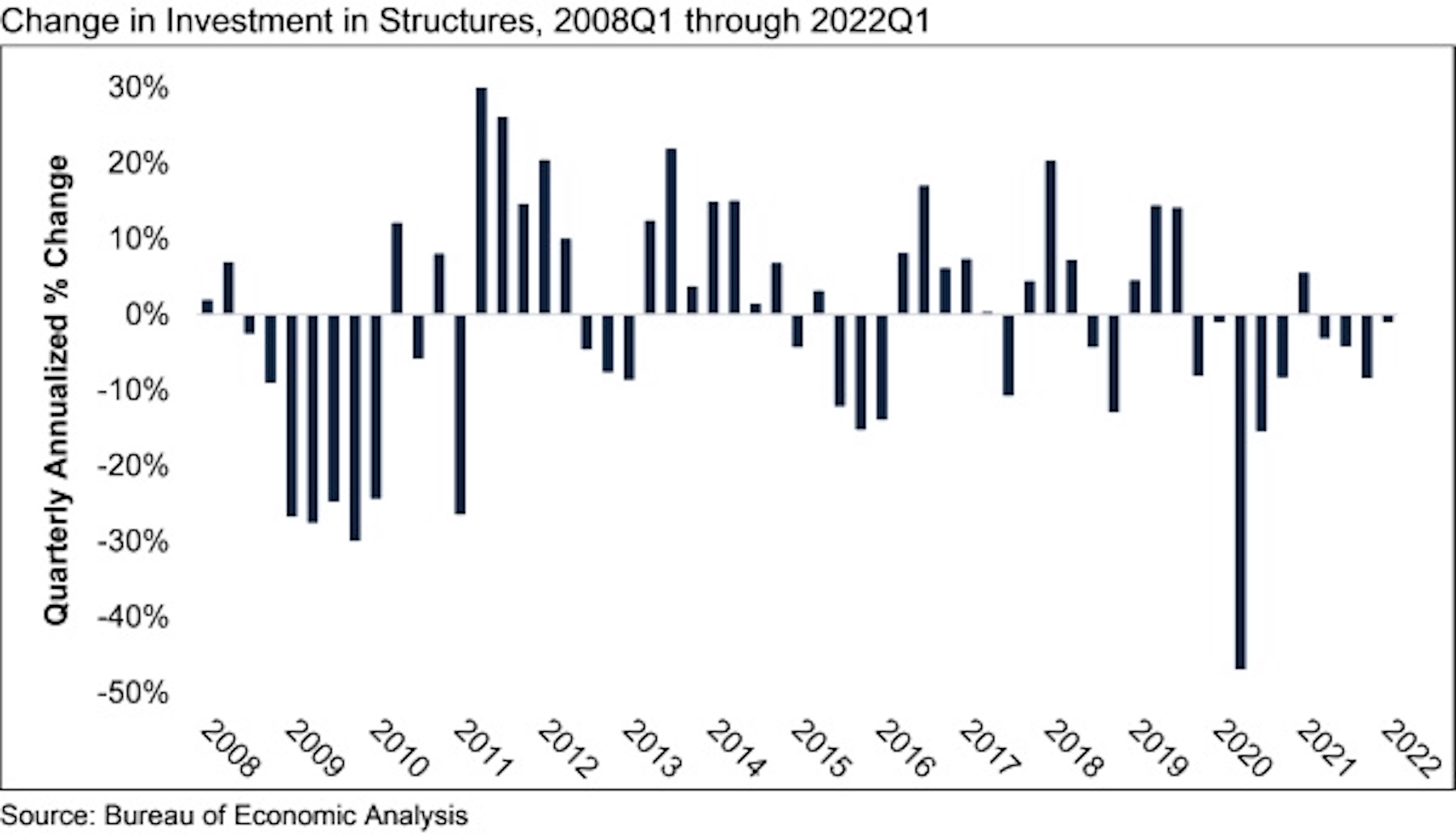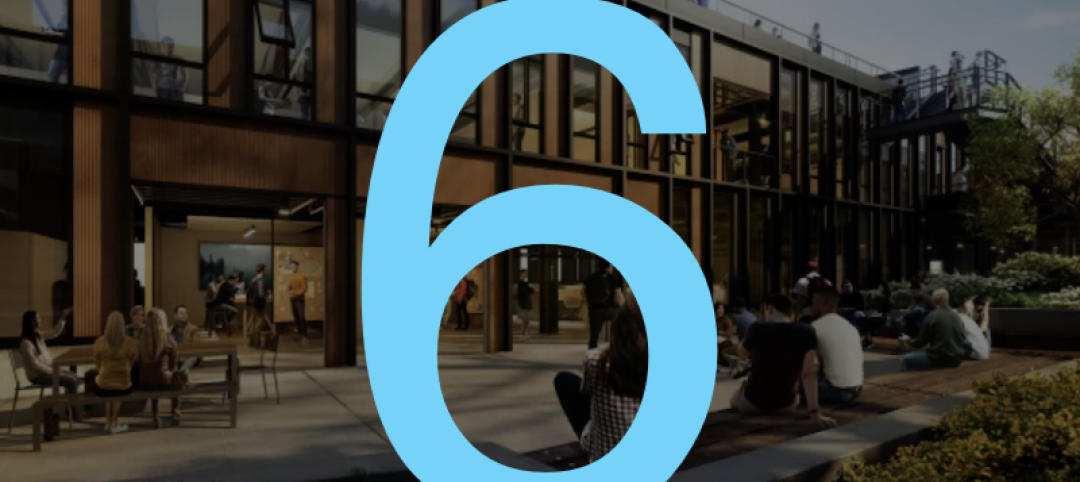The U.S. economy contracted at a 1.4% annualized rate during the first quarter of 2022. Investment in nonresidential structures declined at an annual rate of 0.9% during the quarter and has contracted nine of the past 10 quarters, according to an Associated Builders and Contractors analysis of data released today by the U.S. Bureau of Economic Analysis.
“The economy’s woeful performance during 2022’s first quarter complicates matters,” said ABC Chief Economist Anirban Basu. “Conventional wisdom says the economy has enough momentum to contend with the tighter monetary policy the Federal Reserve is pursuing to countervail inflation. Today’s data indicate that the economy is weaker than thought, which means the Federal Reserve will have a very difficult time curbing inflation without driving the economy into recession in late 2022 or 2023.
“That said, the economy should manage to generate some positive momentum during the next two to three quarters,” said Basu. “Consumer demand for goods and services remains strong. The omicron variant affected the economy during the first quarter and that does not appear to be the case during the second. Global supply chains have been adjusting to the dislocations caused by the Russian-Ukraine war. Many state and local governments are flush with cash and continue to plan for a period of elevated infrastructure outlays.
“There is one other bit of good news,” said Basu. “The weakness exhibited by the economy during the first quarter may persuade monetary policymakers to raise interest rates less aggressively. This is a matter of significance for nonresidential contractors, who have become less confident in recent months, according to ABC’s Construction Confidence Indicator. Investment in structures continues to decline in America, in part due to weakness in office, lodging and shopping mall segments. Presumably, additional rapid increases in borrowing costs would further dampen new construction in these categories. It may be that the Federal Reserve will raise interest rates more gradually than they would have knowing that the U.S. economy is already rather fragile.”


Related Stories
Market Data | Sep 23, 2020
Architectural billings in August still show little sign of improvement
The pace of decline during August remained at about the same level as in July and June.
Market Data | Sep 23, 2020
7 must reads for the AEC industry today: September 23, 2020
The new Theodore Presidential Library and the AIA/HUD's Secretary's Awards honor affordable, accessible housing.
Market Data | Sep 22, 2020
6 must reads for the AEC industry today: September 22, 2020
Construction employment declined in 39 states and no ease of lumber prices in sight.
Market Data | Sep 21, 2020
Washington is the US state with the most value of construction projects underway, says GlobalData
Of the top 10 largest projects in the Washington state, nine were in the execution stage as of August 2020.
Market Data | Sep 21, 2020
Construction employment declined in 39 states between August 2019 and 2020
31 states and DC added jobs between July and August.
Market Data | Sep 21, 2020
6 must reads for the AEC industry today: September 21, 2020
Four projects receive 202 AIA/ALA Library Building Award and Port San Antonio's new Innovation Center.
Market Data | Sep 18, 2020
Follow up survey of U.S. code officials demonstrates importance of continued investment in virtual capabilities
Existing needs highlight why supporting building and fire prevention departments at the federal, state, and local levels is critical.
Market Data | Sep 18, 2020
6 must reads for the AEC industry today: September 18, 2020
Sagrada Familia completion date pushed back and energy code appeals could hamper efficiency progress.
Market Data | Sep 17, 2020
6 must reads for the AEC industry today: September 17, 2020
Foster + Partners-designed hospital begins construction in Cairo and heat pumps are the future for hot water.
Market Data | Sep 16, 2020
6 must reads for the AEC industry today: September 16, 2020
REI sells unused HQ building and Adjaye Associates will design The Africa Institute.

















